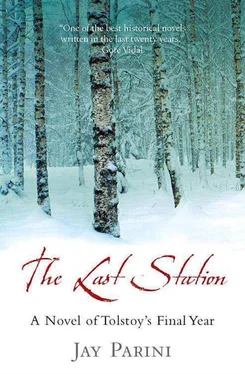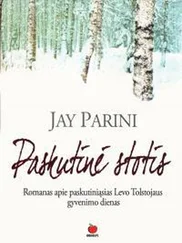This past spring, during a Scripture examination in Moscow, the teacher, a bishop, asked the girls being examined about the commandments, especially the sixth one. When the right answer was produced, the bishop routinely asked a further question: Is killing always forbidden by the Scriptures? The poor girls, corrupted by their mentors, had to answer ‘not always.’ Killing, they had been taught to say, is allowed in time of war and for the execution of criminals. Alas, when one of these poor girls (this is a true story, told to me recently by an eyewitness), after giving her answer, was asked the routine question about whether or not killing was always sinful she replied, blushing nervously, ‘Yes, it is always sinful.’ When questioned further, she pointed out that even in the Old Testament killing was forbidden; she added that Christ, in the New Testament, had even forbidden the perpetration of evil against one’s brother. In spite of his renowned eloquence, the bishop was silenced, and the girl walked away victorious.
Yes, we may talk in our journals about the successes of aviation, about complex diplomatic relations, about clubs, inventions, alliances of all kinds, or about so-called works of art, yet still ignore what the girl in Moscow said to the bishop. However, we must not do that. Everybody in the Christian world knows this – knows it more or less vaguely – yet knows it. Socialism, communism, anarchism, the Salvation Army, the growth of crime, unemployment, the continuing luxury of the wealthy classes and the destitution of the poor, even the rate of suicides – all register this internal contradiction, which must be solved, and, of course, solved in the sense of acknowledging the law of love. And so your work in the Transvaal, at what seems to us the other end of the world, is the most central and important of all tasks now being done in the world, and not only Christians but all people will inevitably take part in it. I think you will be glad to know that this work is also rapidly developing in Russia in the form of refusals to do military service, a movement that grows every year. However insignificant the number may be among your people or ours who practice nonresistance, they can all say boldly that God is with them. And God is more powerful than men.
In recognizing Christianity, even in its distorted form as professed today, and in recognizing at the same time the necessity for armies and arms to kill in wars on such an enormous scale, governments express such a crying contradiction that sooner or later, probably sooner, they will be exposed. Then they shall put an end either to Christianity (which has been useful to them in maintaining power) or to the existence of armies and the violence they support. All governments – your British and our Russian included – feel this contradiction keenly; as a result, they attack those who practice nonresistance all the more vigorously, out of a feeling of self-preservation. Governments know where the enemy lies, and they keep a close eye on their own interests, aware that their very existence is at stake.
It has been awkward for me here, living between two worlds. I still have a few friends at Telyatinki, mostly among the servant boys and drivers, but Sergeyenko and Chertkov have abandoned me. Since Chertkov came to live here again, the situation has grown even less tolerable. He is a crude, manipulative ideologue and, worse, a bore. On the other hand, Yasnaya Polyana is no longer the comfortable place for me it briefly was. Sofya Andreyevna has become skeptical of my intentions. She doesn’t understand that my first loyalty must be to Leo Nikolayevich, that I try to do what serves him best. Her attitude toward me goes to extremes: either she treats me as a traitor or she behaves as she did yesterday when I passed her in the hall. ‘It’s a godsend having you here with us, my dear. Did you realize that?’ she said.
‘If that’s true, I’m pleased to hear it.’
‘It’s much less tedious when you’re here. Even Leo Nikolayevich feels livelier in your presence. And you are so tactful! A walking miracle of tact!’
It occurred to me that she was teasing, but she was not being entirely false. The problem with Sofya Andreyevna, always, is her manner of expression. Like many people, she has no control over her tone. A myriad of conflicting feelings cross in her head and mangle her nuances. You have to guess at what she really means.
‘I should also say that you seem evasive,’ she said. ‘Are you evasive?’
‘There’s no way to answer that without implicating myself.’
‘Hush!’ She put a finger to my lips. ‘No excuses. You’re better than that. You are simply trying to keep the peace around here – a perfectly Christian thing to do.’
‘You do understand me, don’t you?’
‘I hope that in sixty-six years I have learned a little something, dear Valentin Fedorovich. I am to be pitied for what I haven’t learned, perhaps.’
I saw here a glimmer of the great person she might have been, given other circumstances. The situation of life here is not conducive to sainthood, especially for a woman in Sofya Andreyevna’s position. She is torn, like me, between two points of the compass.
Through all this, I remain impressed with Leo Nikolayevich. He cannot be flattered. A few days ago, I walked down by the Voronka and came upon the bathhouse used by the family in summer, an endearing little structure made of clay and wattles. There is one plastered wall on the outside, on which visitors to the estate have inscribed their comments. I copied them in my notebook:
1. Down with capital punishment!
2. May the life of L. N. be prolonged for as many years again.
3. In token of a visit to Count L. Tolstoy, a man with an intellect as large as a lion…
4. Come, all you who have grown weary in the struggle. Here you shall find peace.
5. This hallowed but was visited by a student of the Moscow Geodetic School.
6. A bumble pilgrim offers his respect.
7. An admirer of the Count, now and always.
8. Glory to the great one, glory!
9. No one, not even Tolstoy, knows the truth.
10. After long dreaming, we have at last visited the genius of the human mind.
11. ‘Those born to crawl cannot fly.’ What can I write? All look pale compared to you.
12. M. Bolsky was here.
At her request, I gave Sofya Andreyevna a copy of these remarks, and she placed it on the piano in the sitting room, where Leo Nikolayevich would see it. Passing through the room, he said gruffly, ‘What is this?’
‘Comments, my dear. Mostly about you. Bulgakov copied them from the bathhouse wall.’
He picked up the paper and skimmed the comments. His lips moved slightly as he read.
‘Not interesting,’ he said, dropping it on the piano.
Biryukov has been visiting. One of Leo Nikolayevich’s most ardent disciples, he is being prosecuted by the government for possession of certain banned texts by Tolstoy. The trial begins in four weeks, and he may be sent to prison for as much as eighteen months. This is an enormous source of pain to Leo Nikolayevich, who is reluctant to have anyone suffer on his behalf.
This afternoon he went for a long ride on Delire and returned looking haggard. He said he would go to his room for a nap – not his usual habit.
We waited for him to sit down to dinner, but when he hadn’t emerged from his room by seven we began eating without him. Sofya Andreyevna ladled out the soup, a hot chicken broth with fat carrots floating in it, then excused herself to check up on her husband. It was unlike him, she said, to miss a meal. None of us spoke, though we continued to eat. It is always nerve-racking when an old man does not appear on time.
Sofya Andreyevna came back wringing her hands. It seems that when she went in, he was sitting up on the edge of his bed. He looked pallid and claimed he was not hungry and would simply go to bed without dinner. His pulse was slightly rapid, and a fine sweat beaded his forehead and made his cheeks appear slick.
Читать дальше












